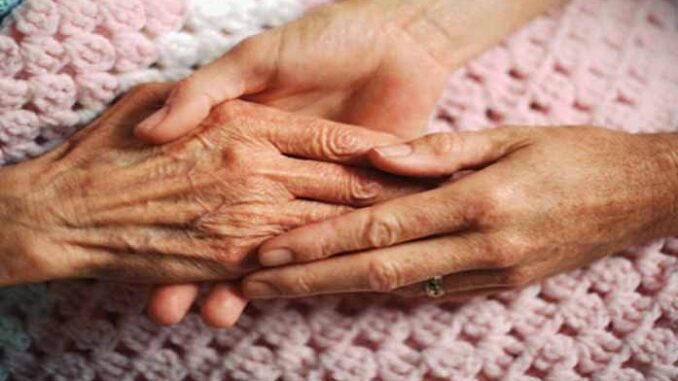
On Tuesday, Arizona State Rep. Quang Nguyen’s bill, HB 2449, that aims to ensure that long-term care facility residents have a right to visitation from clergymen is headed to Governor Doug Ducey’s desk.
The bill requires care facility to allow clergy visitation if they allow any in-person visitation of any kind, even during a state of emergency.
HB2449 is on its way to the Governor’s desk. This bill requires a health care institution to allow clergy to visit a resident if the institution allows in- person visitation of any kind, including during a declared state of emergency. pic.twitter.com/N37qvgci70
— Quang Nguyen (@QuangNguyenAZ) April 19, 2022
Currently, Arizona statute requires a hospital to provide notice of its visitation policy to any patient or the patient’s representative. If a hospital’s visitation policy allows in-person visitation of any kind and if authorized by the patient or the patient’s representative, the hospital must facilitate the ability of clergy to visit the patient in person for religious purposes. Clergy must comply with reasonable health and safety precautions imposed by hospitals in connection with in-person visitation.
If a hospital’s visitation policy does not allow in-person visitation of any kind at all times or temporarily for health and safety reasons, the hospital must facilitate a virtual clergy visit using communication technology (A.R.S. § 36-407.01).
HB 2449 Provisions:
1. Requires a health care institution that allows any kind of in-person visitation to allow a clergy member to visit a resident who requests an in-person visit or consents to be visited in person for religious purposes, including during a declared state of emergency.
2. Requires a health care institution to allow a clergy member to visit in-person for religious purposes when a resident’s death is imminent, if the:
a) resident requests or consents to be visited by the clergy member; or
b) resident’s legal representative requests that the resident be visited by the clergy member.
3. Allows the resident’s legal representative to request an in-person visit or to consent to be visited in person by a clergy member if the resident is unable due to dementia or a similar cognitive impairment.
4. Allows a health care institution to require clergy to comply with reasonable health and safety precautions, including undergoing health screenings and wearing personal protective equipment for preventing the spread of communicable diseases.
5. Allows the health care institution to require compliance with health and safety precautions only
if:
a) compliance in that instance furthers a compelling interest;
b) the health care institution imposes the least restrictive burden on the clergy member’s exercise of religion; and
c) compliance would substantially burden the clergy member’s free exercise of religion during visitation.
6. Allows a health care institution to restrict visits of a clergy member who fails a health screening measure or tests positive for a communicable disease.
7. Holds a health care institution and its employees and contractors harmless from civil liability to a resident or a person visiting a resident for injury or death due to exposure to a communicable disease resulting from or related to a clergy visitation, unless it is proven by clear and convincing evidence that the health care institution failed to substantially comply with its own health and safety precautions.
8. States that the prescribed immunity does not apply to any act or omission unless there is clear and convincing evidence that the act or omission constitutes gross negligence or willful or wanton misconduct.
9. Allows a person or religious organization to bring a civil action against a health care institution for alleged visitation requirement violations.
10. Allows any person that successfully asserts a visitation violation claim or defense to recover:
a) declaratory relief;
b) injunctive relief;
c) reasonable attorney fees and costs; and
d) any other appropriate relief.
11. Defines resident as a person living at or receiving inpatient services from a health care institution.
